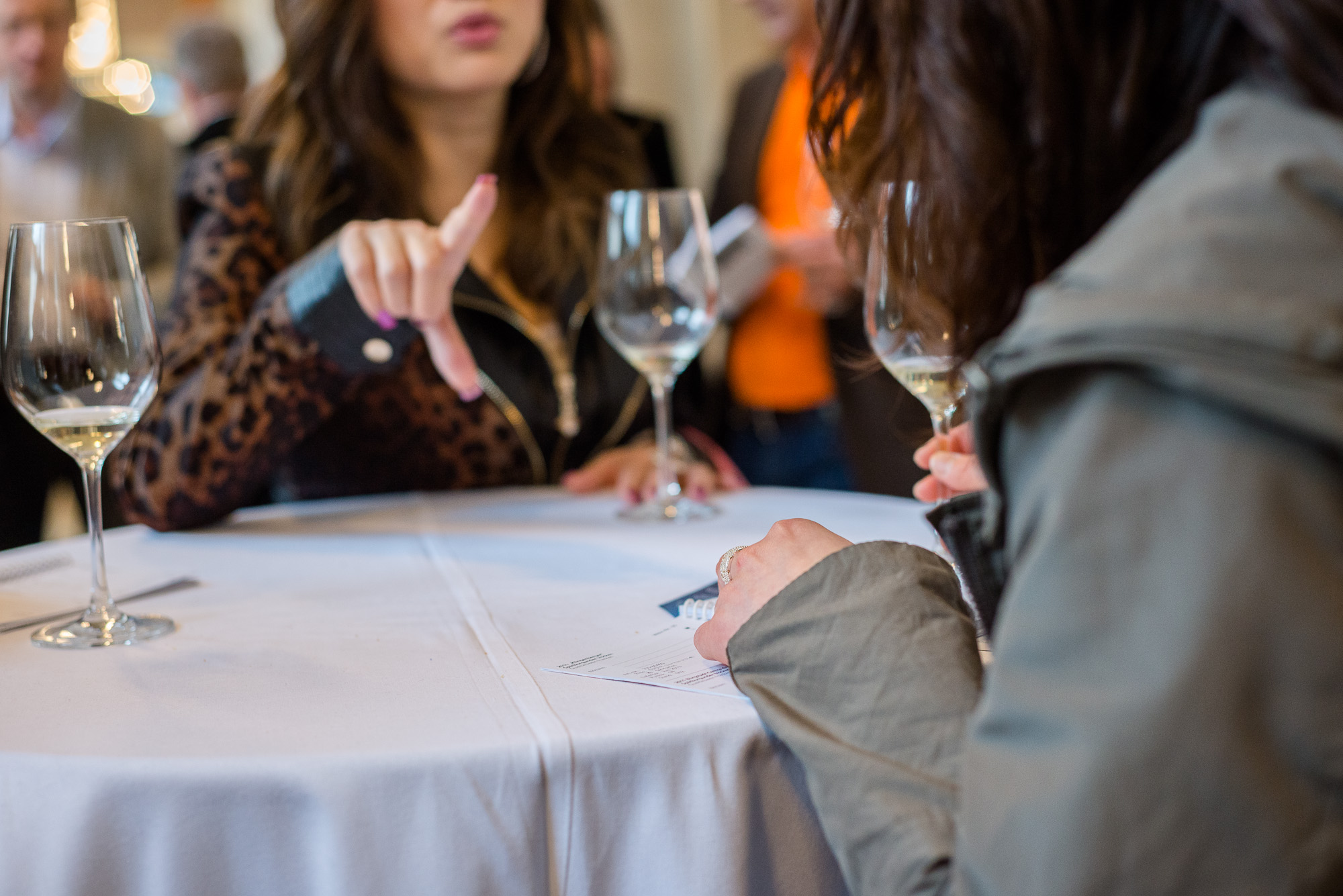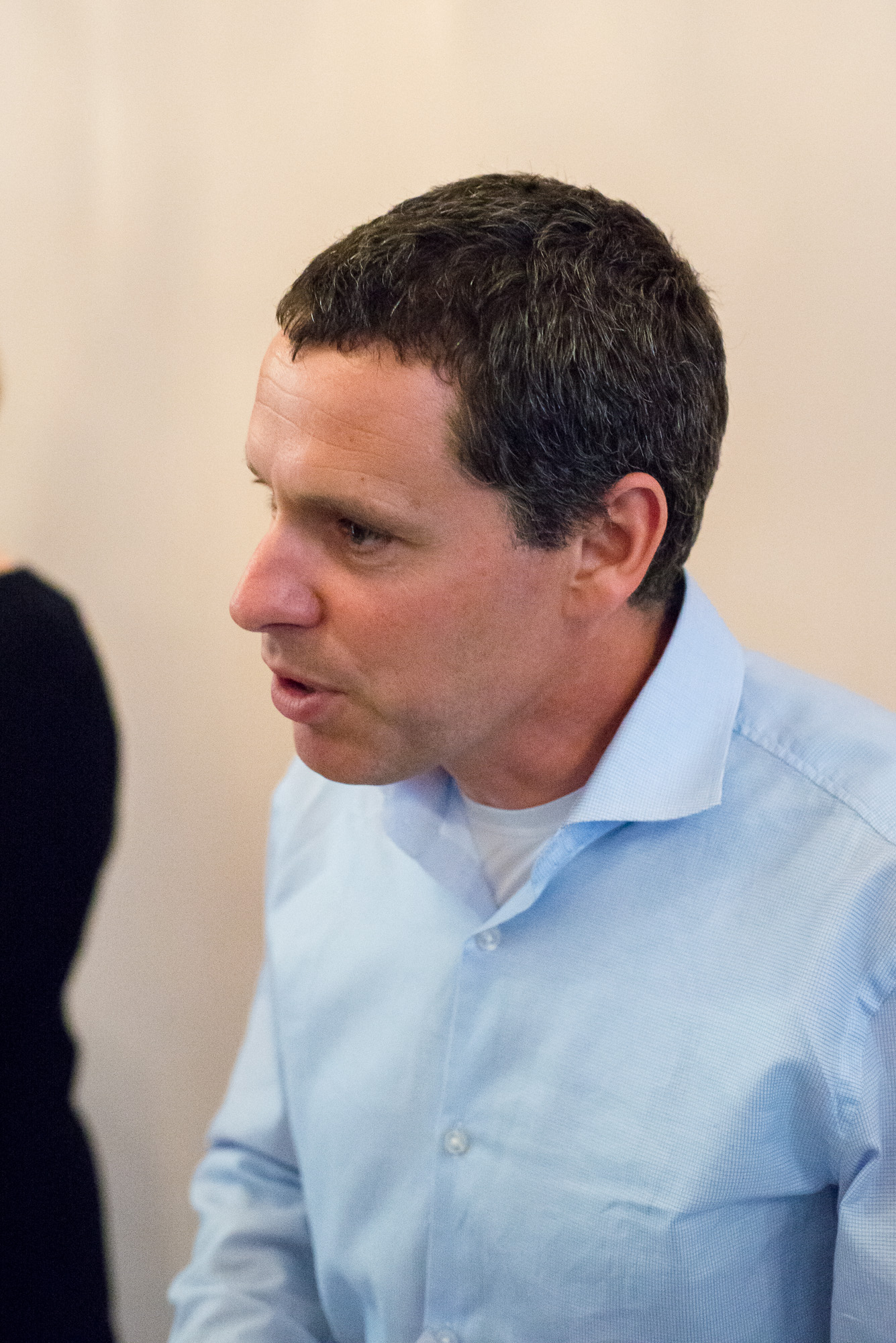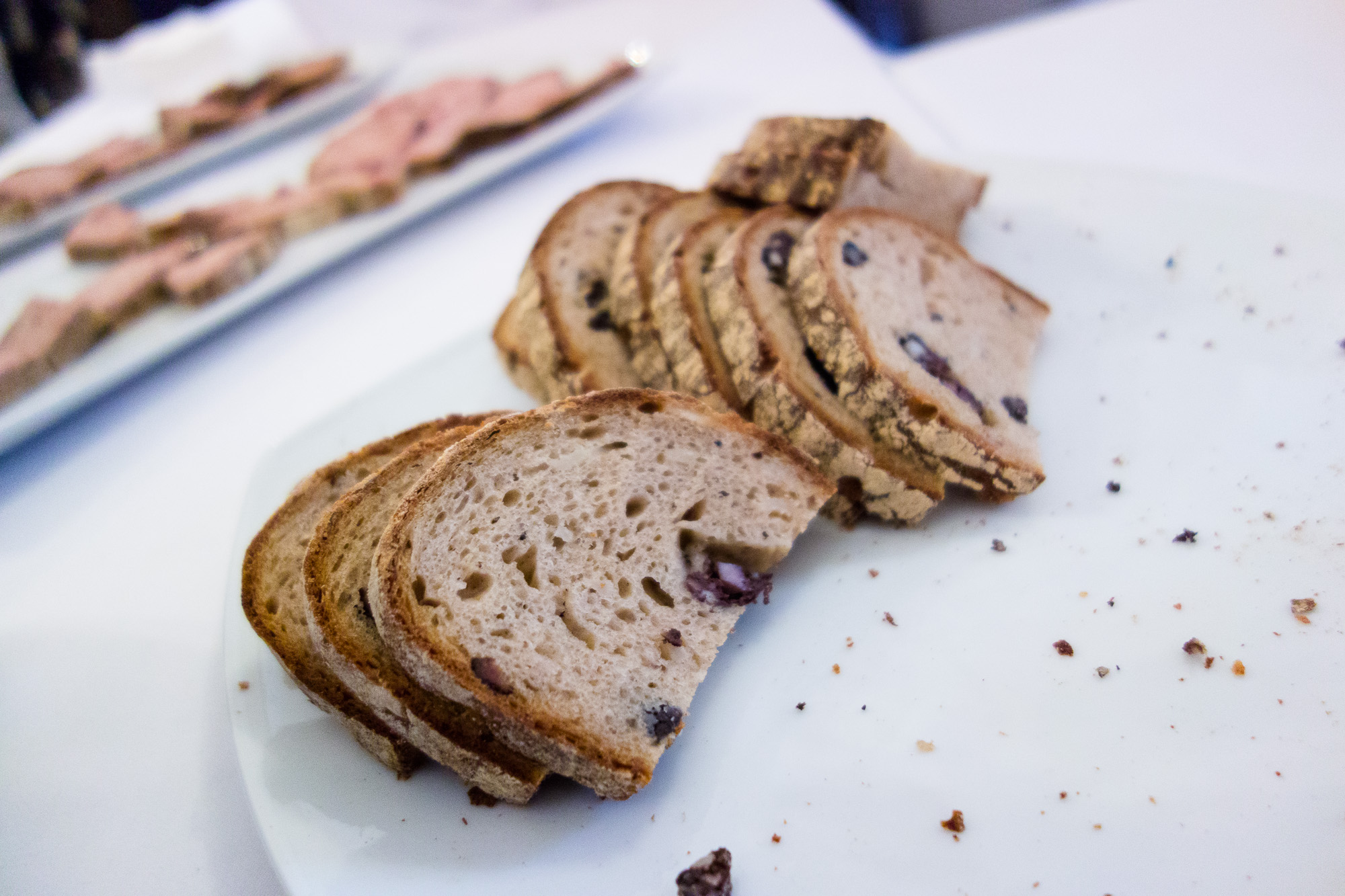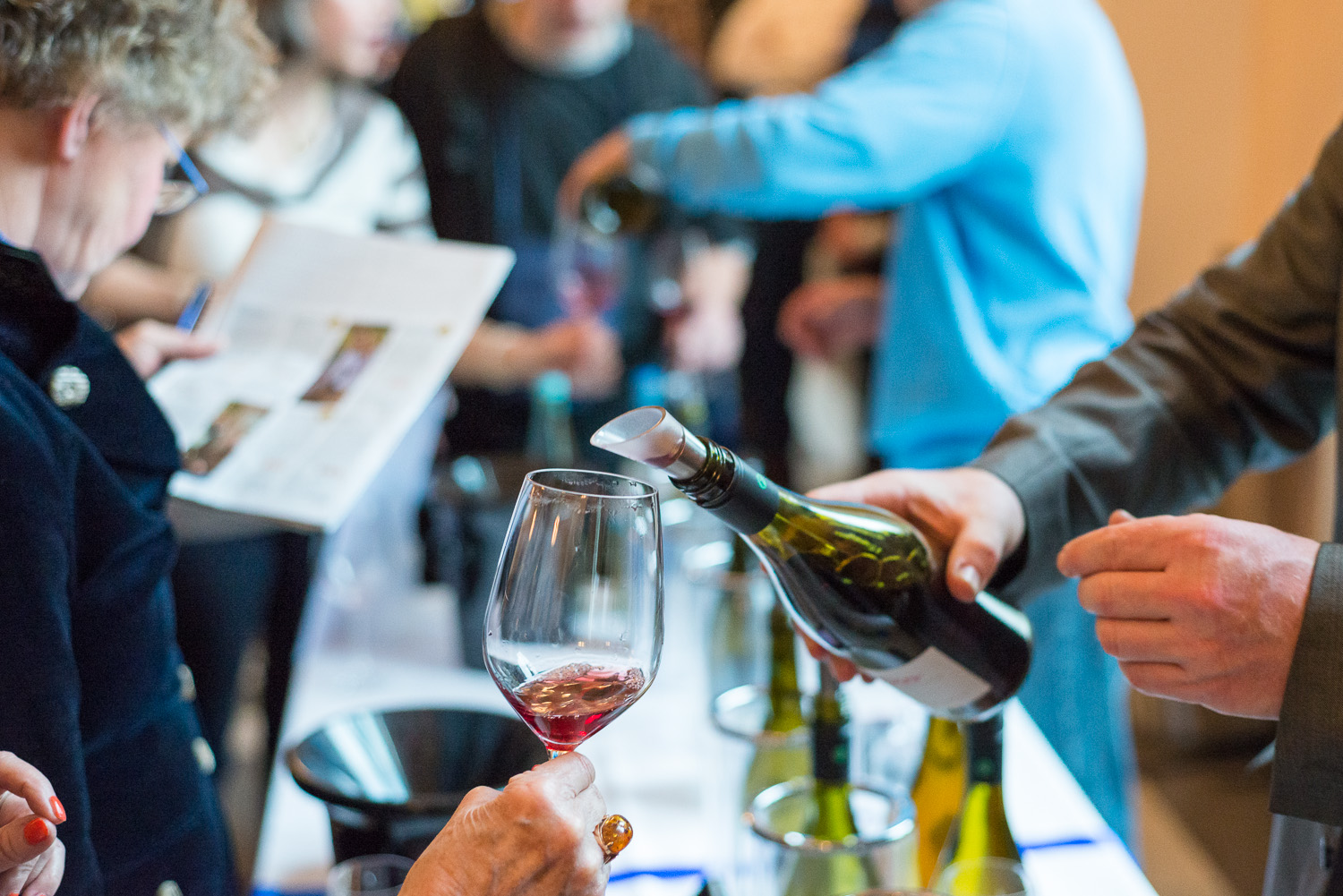Speak, barrel sample - an afternoon with Dallmayr's winemaking elite (Part two)
We had heard a shy young Franconian winemaker talking about finding his own way, a sage dispensing Riesling wisdom, and the hulking star of the river Saar warn us of his own wines. But in spite of our heads beginning to spin, our palates starting to give out, and the lure of Dallmayr's fine sausages, cheeses and chocolates pulling us away, we had not yet heard enough...

In case you missed the first part of this report about Winzerelite ("wine growing elite"), the annual spring tasting hosted by posh Munich wine and fine food store Dallmayr, in which we were talking.... No we weren't, really. We resolved to, this once, fulfil our journalistic calling and let winegrowers do the talking. One wine each, and whatever they wanted to tell us about it and what choices they made in making it - those were the rules.
If there is a natural born talker among German winemakers, it must be Hanspeter Ziereisen, whose red cheeks and sparkling eyes seem to draw a crowd of listeners around him and his equally gregarious wife wherever they are. Besides talking, his outstanding talent lies in and making superbly refreshing red wines. We could not possibly pass on his 2010 Syrah "Gestad", knowing it from previous vintages. What makes this wine what it is?

Well, our Syrah vines were planted just 12 years ago, so they're relatively young.
Are they still getting better with every year of age?
I would hope so (laughs).
For how long?
Oh, 80, 100, 120 years. Nothing I now plant will be pulled out again in my lifetime. We can't boast old vines like Molitor or Van Volxem, which is a real pity. A few very old Pinot Blanc vines, about 50 years, we could buy. I had to buy a whole stretch of the surrounding vineyard I didn't even want to get my hands on them. We'll do something separate with those, some micro-cuvee, I'll think of something.
Well, what we have is already great: The Syrah is, more than ever, a wonderfully appetising wine, or, to quote my Co-Rambler: "This is a red that I could empty all on my own over an evening, and that's high praise". A wonderful style, light and fresh enough for Pinot lovers, but with the more meaty aromatics of the Northern Rhone as well. You could probably subsist on just this and lamb cutlets for an extended period of time and not be lacking anything.

While Ziereisen is an old favourite on this blog, the Wagner-Stempel winery of Rheinhessen has not yet enjoyed much coverage. This may well change after meeting Daniel Wagner, the articulate, opinionated and likeable wine maker who poured the 2012 Siefersheimer Riesling "vom Porphyr" for us.
Right away, we hit him with our killer question: Why does this Riesling taste as it does?
It's fermented partly in stainless steel tanks, partly in large oak vats. The steel makes for clear, bright fruit, the oak for more depth and creaminess. Oak or steel - it's a stylistic choice, but also depends on your logistics and what you have to work with: You can really only ferment wines in oak vats if you have proper underground cellars - overground facilities are too dry, too warm in summer, and the wines will oxidise too quickly. I like the wooden vats, to me they are a marker of quality for the more upscale bottles, and I would like to use them more overall, but one third oak and two thirds steel is a mix that works for my Riesling.
Other than that, what is your approach to winemaking?
In matters of style, I don't want to reinvent winemaking, and I don't want to polarise: I want to make wines people can enjoy. I don't want to take part in some winemaking freakshow where wines are statements of the maker's creative ambition and radicality, but nobody enjoys drinking them all that much. If you put three bottles on a table with food, the one that's emptied first - that's the best wine.
Chances are that the "vom Porphyr" will be that wine in almost any such set-up: Expressive fruit, just as described, a yummy, but also serious white.

Time for one last wine choice: Holger Koch, who makes wine in Baden's Kaiserstuhl subregion, chose his 2012 Chardonnay/Weißburgunder *** trocken "Edition Dallmayr" when we asked him to pour us the wine most worth talking about in his collection. Is this the first Chardonnay blend that he has made?
Yes and no. Until this vintage, the Chardonnay that we have always went into other wines unmentioned.
You can do that?
Sure you can do that. Up to 15% of any given variety that you blend into a wine don't have to be on the label, so some 10% of Chardonnay in a Pinot Blanc is quite common. This year, though, the Chardonnay turned out very well and we decided to blend it half and half with Pinot Blanc. That's also because Dallmayr is looking for "special" cuvées out of the normal range of their producers, and we were happy enough to oblige.
We liked the result quite a bit. Holger Koch has managed to control the acidity of the 2012 vintage and went for a richer and more full-bodied style, with all the almond and biscuit notes you expect form Pinot Blanc. Frankly restful after so many of the sinewy and tightly wound (and partly excellent) Rieslings that seem to be the signature of the vintage.

One winemaker, one wine, and a few simple questions - what are the lessons here? The first thing, I guess, is that if we could do it, everybody can. We didn't have any kind of "wine blogger" badges or other means of privileged access, we just stepped up and asked like everybody else. Yet, most of the time, we got serious and genuinely helpful answers. This approachability is almost too banal to mention for many, I'm sure, but nonetheless a great unsung glory of the wine world as we've come to know it: After all, you can't usually sneak up on great chefs at cooking fairs and ask just how they came up with this amazing soup, or get chummy with great fashion designers to get their view on next autumns favoured colours. But in the (German) wine scene, even the very best in the business (and that, by definition, means world class) will tell you pretty much everything about their work for the asking.
That being said, it's not all that easy to ask the right questions, and we came up with our share of rather pointless ones, and answers to match them. We found out fairly quickly that we should stay away from the talking points of current wine making controversies like "do you use natural or cultured yeasts?" or "what's your view on biodynamic winemaking?", but did well when we simply started with curiosity about a single extraordinary wine and what made it. This produced some interesting moments where a discussion of technical choices or commercial options began to intersect with the broader themes of consumption and diversity.
Maybe we could get a discussion going, in the comments below or elsewhere, about how us humble (or not so humble) wine bloggers can use the access available to us to tease out how winemakers tick, and just how much background to the bottle is useful to have. After all, many of us are also fine with more or less sticking to tasting notes.

humility is the key in the wine world
I was looking forward to this post regarding the Dallmayr wine and food event and I was happily rewarded, its always refreshing to read a blog where the bloggers as well as those being interviewed are "real".
In my different reading and studying about the wine world whether its a wine maker, an oenologist, wine critic, wine writer, sommelier, etc a recurring theme. As all the truly great ones seem to remember their roots and realise that they are carrying on a tradition that stretches back pretty much to the beginning of human history.
At the same time I think too much pandering or trying overly hard to be savvy and au courant can lead to making oneself a nuisance. The wise approach is to be respectful and curious about the wines, the philosophy and their approach, as that way you relate as not exactly equals but traveling companions on the wonderful journey of the world of wine.
Our city is having its annual wine fair at the end of the month, so looking forward to it. There probably won't be any mind-blowing Riesling or jaw dropping Spatburgunder, but all it should be educational and good fun.
Looking forward to everyone's else's comments on this interesting topic and your feedback.
Cheers!
Solomon Mengeu